A vessel ABCD of width has two small slits and sealed with idebtical glass plates of equal thickness. The distance between the slits is . POQ is the line perpendicular to the plane AB and passing through O, the middle point of and . A monochromatic light source is kept at below and from the vessel, to illuminate the slits as shown in the figure. Calculate the position of the central bright fringe on the other wall CD with respect of the line . Now, a liquid is poured into the vessel and filled up to . The central bright fringe is fiund to be at Q. Calculate the refractive index of the liquid.
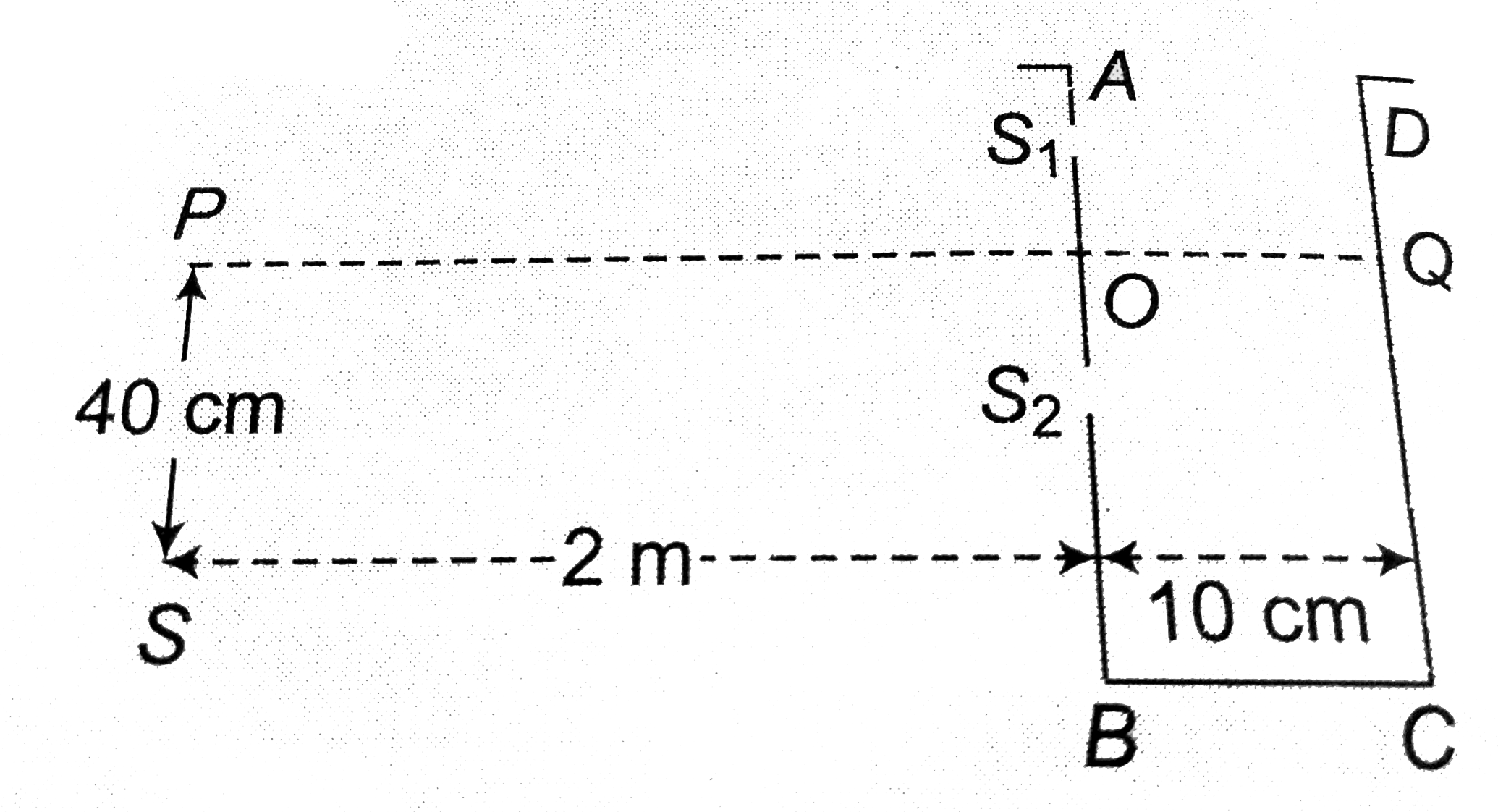
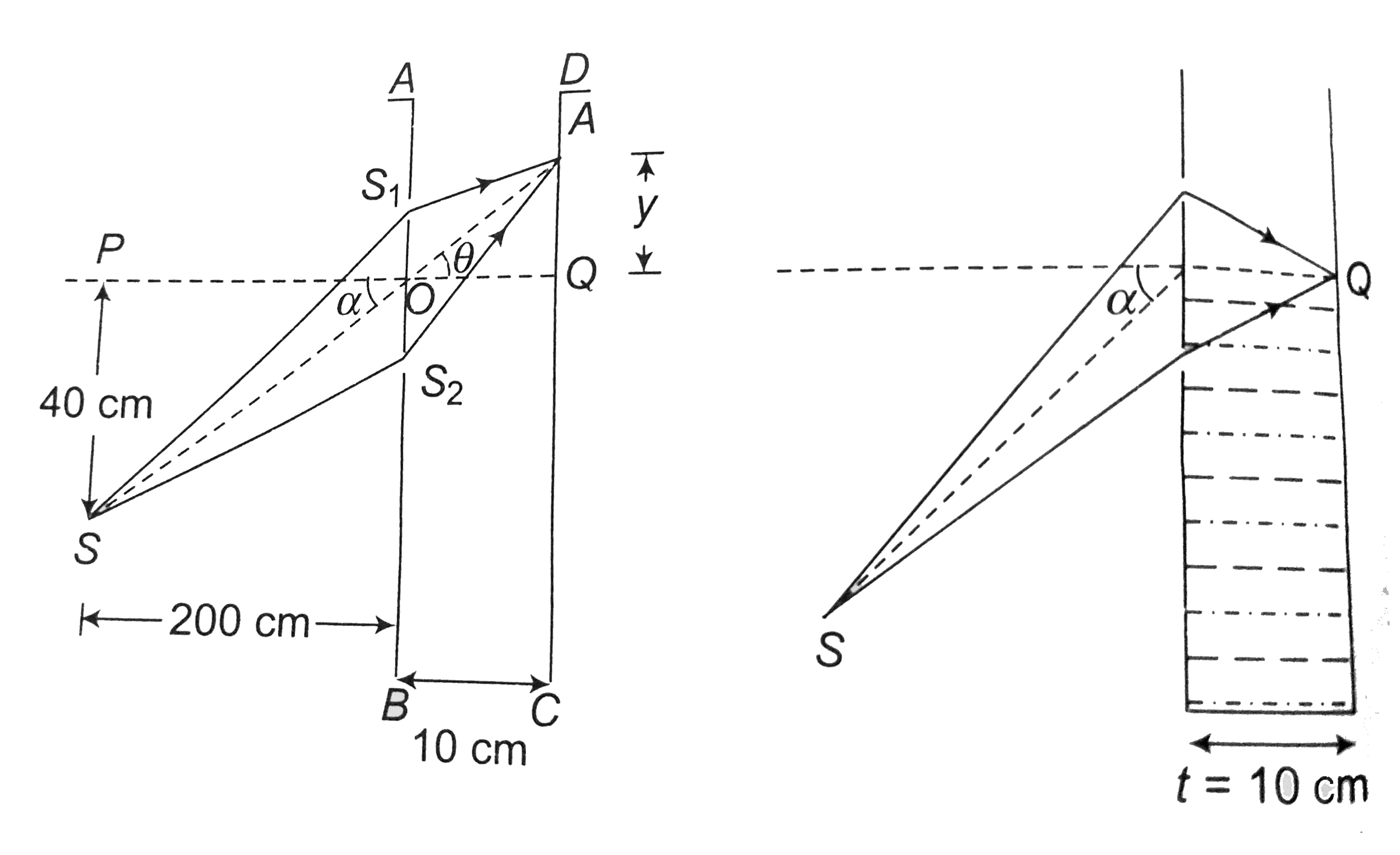
Path diffenence before slits
Path difference after slits
As angles are small,
For to be central maximum
When vessel is filled with liquid, path difference at after slits
At :
Related Playlists
Knowledge Check
- Question 1 - Select One
In Young's double slit experiment, the distance between the two slits is 0.1 mm, the distance between the screen and the slit is 100 cm. if the width of the fringe is 5 mm, then the wavelength of monochromatic light used is
A4000 ÅB6000 ÅC5000 ÅD5400 Å - Question 1 - Select One
In a Young’s double slit experiment, the source illuminating the slits is changed from blue to violet. The width of the fringes
AIncreasesBDecreasesCBecomes unequalDRemains constant - Question 1 - Select One
In the given figure ,C is middle point of line S1S2.A monochromatic light of wavelength γ is incident on slits.The ratio of intensites of S3andS4 is
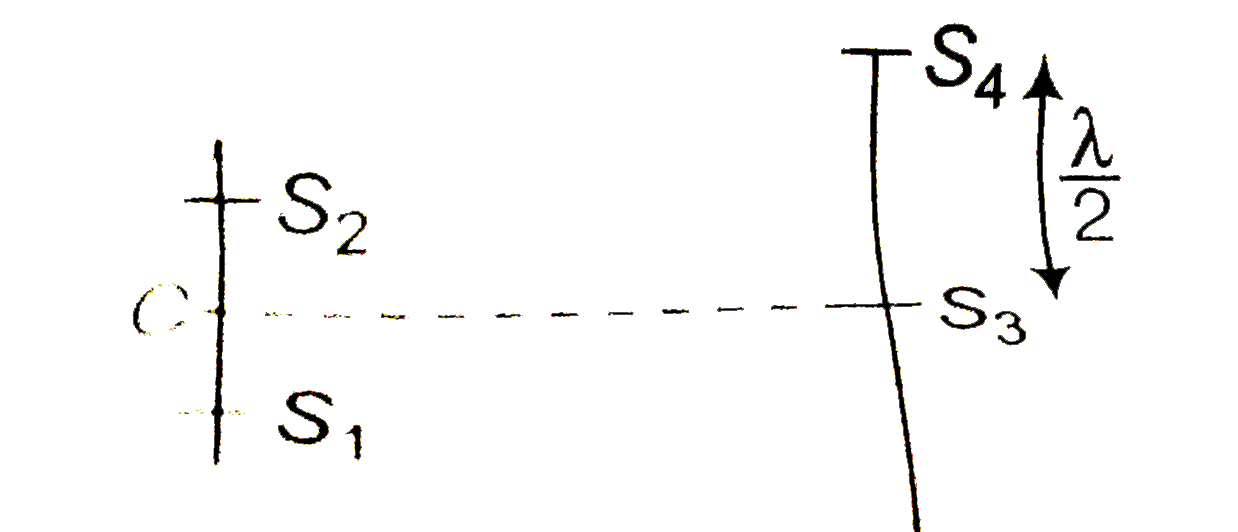 A0B∞C4:1D1:4
A0B∞C4:1D1:4 - Question 1 - Select One
In an interference experiment , two parallel verticals slits S1 and S2 are used. A thin glass plate is introduced in the path of light from S1. Then
Afringe pattern remains unalteredBfringe pattern as a whole is laterally shifted towards S1Cfringe pattern as a whole is laterally shifted towards S2Dfringe width decrease. - Question 1 - Select One
A coherent light is incident on two paralle slits S1andS2. At a point P1 the frings will be dark if the phase difference between the rays coming from S1andS2 is
Anπ radiansB(n+0.5)π radiansC(2n+0.5)π radiansD(2n+1)π radians - Question 1 - Select One
In the set up shown in figure, the two slits S1 and S2 are not equidistant from the slit S. The central fringe at O is then
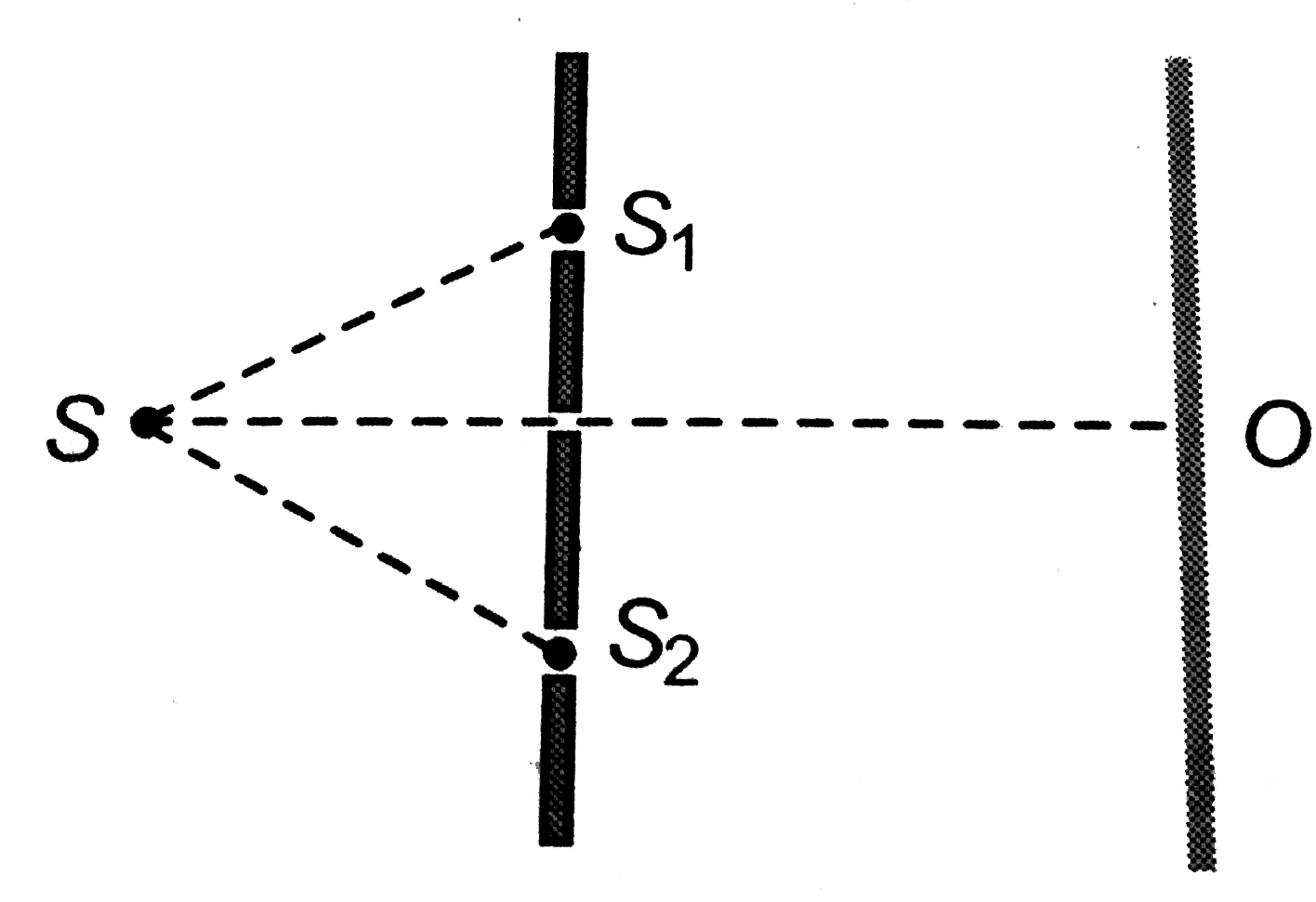 A(a) Always brightB(b) Always darkC(c) Either dark or bright depending on the position of SD(d) Neither dark nor bright
A(a) Always brightB(b) Always darkC(c) Either dark or bright depending on the position of SD(d) Neither dark nor bright - Question 1 - Select One
In Young’s experiment, monochromatic light through a single slit S is used to illuminate the two slits S1and S2. Interference fringes are obtained on a screen. The fringe width is found to be w. Now a thin sheet of mica (thickness t and refractive index μ) is placed near and in front of one of the two slits. Now the fringe width is found to be w’, then :
Aw'=w/μBw'=wμCw'=(μ−1)twDw'=w
Similar Questions
A vessel ABCD of 10 cm width has two small slits s1 and S2 sealed, with identical glass plates of equal thickness. The distance between the slits is 0.8. mm. POQ is the line perpendicular to the plane AB and passing through O, the middle point of S1 and S2. A monochromatic light source is kept al S. 40 cm below P and 2m from the vessel, to illuminate the slits as shown in the figure below. 40cm Calculate the position of the central bright fringe on the other wall CD with respect to the line OQ. Now, a liquid is poured into the vessel and filled up to-OQ. The central bright fringe is found to be at Q. Calculate the refractive index of the liquid
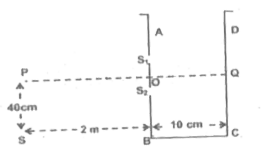 View Solution
View SolutionTwo coherent point sources S1 and S2 vibrating in phase emit light of wavelength λ. The separation between the sources is 2λ. Consider a line passing through S1 and perpendicular to line S1S2. Find the position of farthest and nearest minima.
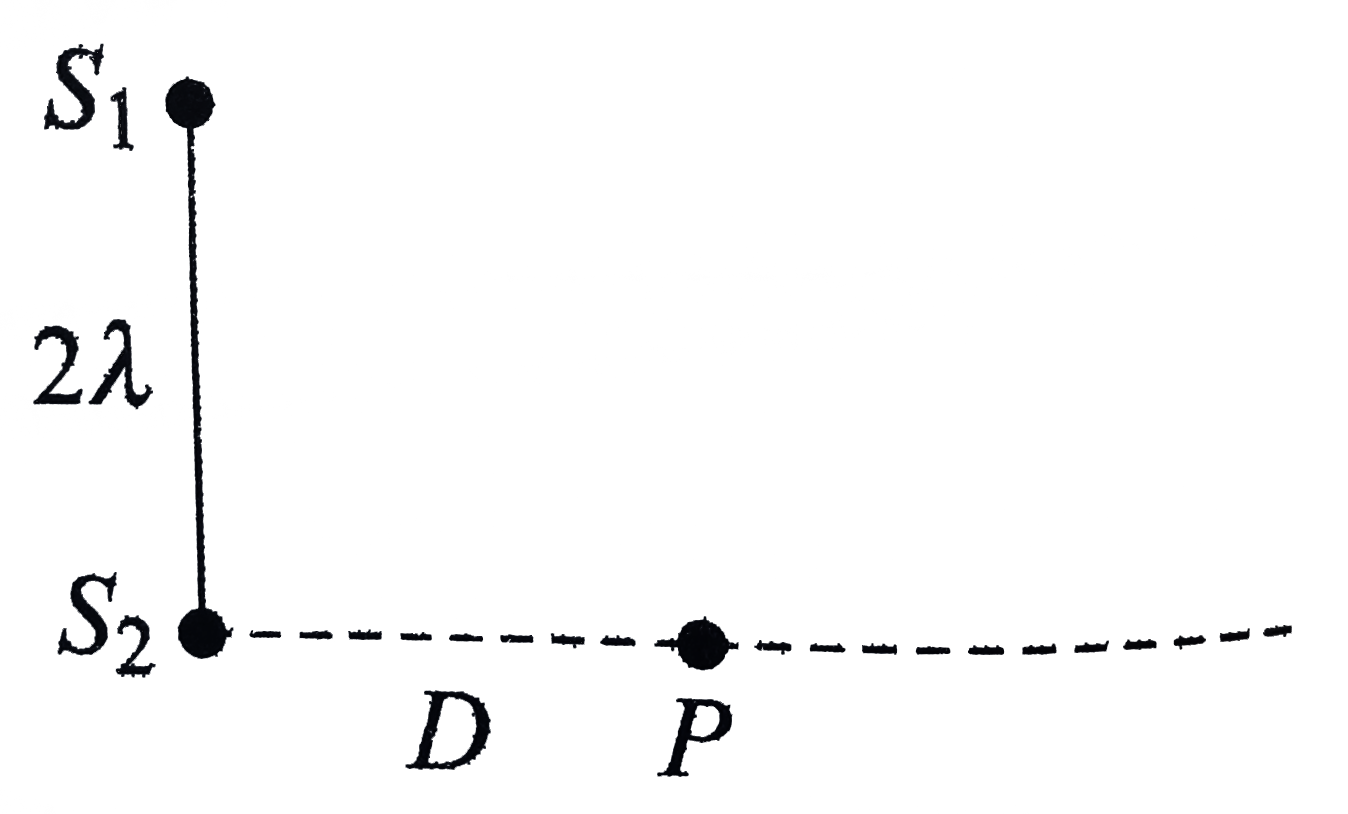 .View Solution
.View SolutionIn an interference experiment, the two slits S1andS2 are not equidistant from the source S. then the central fringe at 0 will be
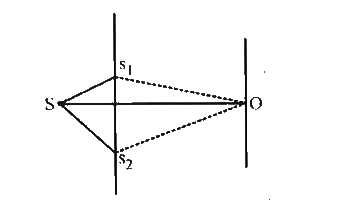 View Solution
View Solution

